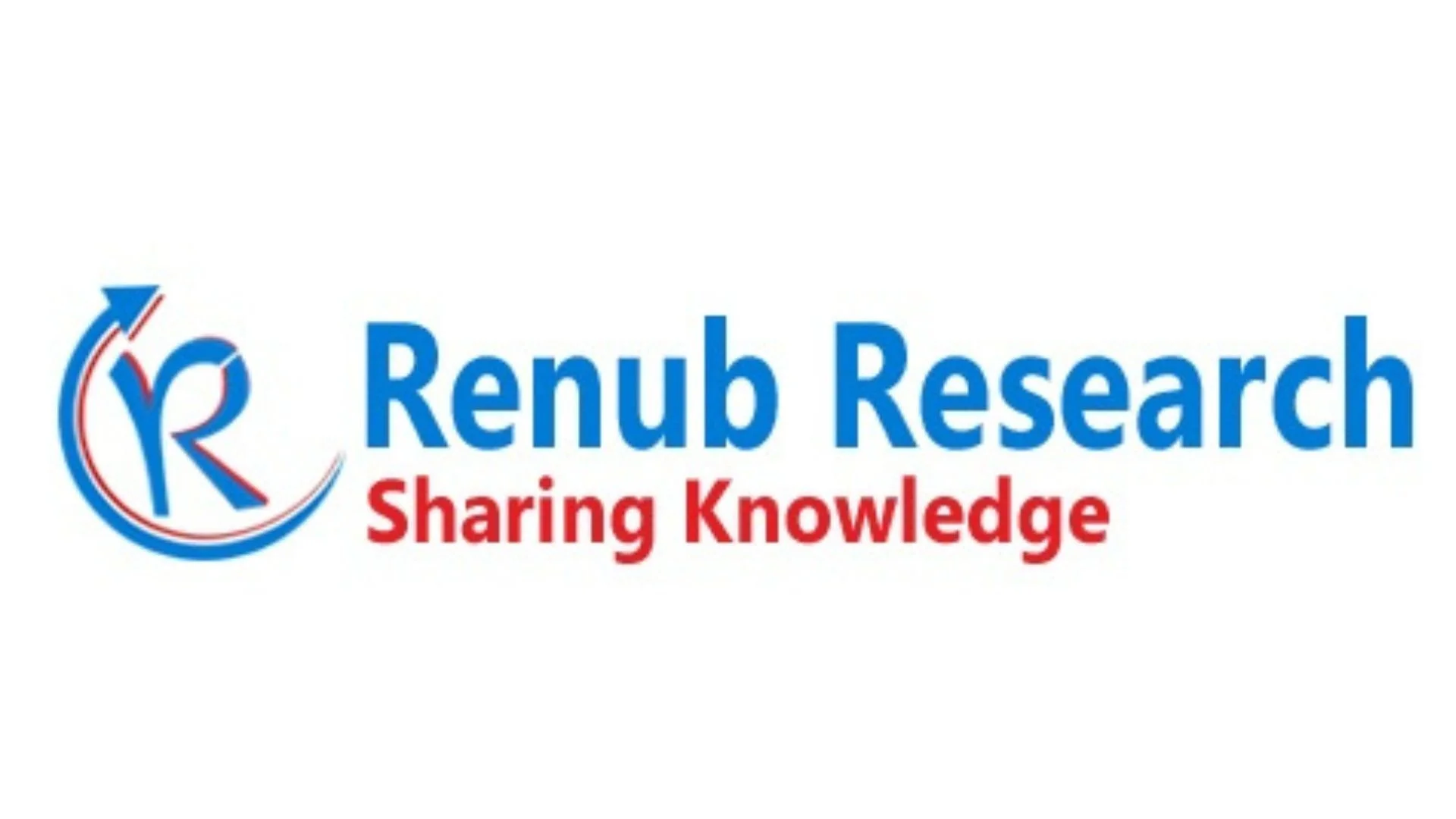United States GPS Tracking Device Market Overview
The United States GPS tracking device market is projected to grow substantially, increasing from US$2.26 billion in 2024 to US$5.43 billion by 2033, achieving a compound annual growth rate (CAGR) of 10.22% between 2025 and 2033. Market growth is primarily driven by the rising demand for real-time tracking solutions across multiple sectors, including transportation, logistics, healthcare, and personal safety. GPS tracking devices improve operational efficiency, security, and monitoring capabilities, making them essential tools for both individuals and businesses.
Full Access Report:https://www.renub.com/united-states-gps-tracking-device-market-p.php
Market Outlook
A GPS tracking device is an electronic tool that utilizes the Global Positioning System (GPS) to determine and track the real-time location of a person, vehicle, or asset. By receiving satellite signals, these devices provide precise geographic coordinates, enabling accurate positioning and monitoring.
In the U.S., GPS tracking devices are widely deployed across industries. In transportation and logistics, companies leverage them for fleet management, route optimization, asset tracking, and inventory control. Personal safety applications include monitoring children, elderly family members, and outdoor enthusiasts. The devices are also critical in sectors such as healthcare, emergency response, and security, highlighting their versatility and importance in modern operations.
Growth Drivers
Growing Demand for Fleet Management Solutions
The rapid expansion of logistics, e-commerce, and ride-hailing services in the U.S. is fueling the demand for GPS tracking devices, particularly for fleet management. Organizations in trucking, delivery, and public transportation rely on GPS systems to optimize routes, monitor driver behavior, and ensure timely deliveries. Rising fuel costs have further emphasized the need for efficient fleet management, making real-time tracking indispensable for cost reduction.
Additionally, federal regulations, such as electronic logging and vehicle safety mandates, promote the use of GPS trackers in commercial fleets. Advanced telematics platforms allow businesses to integrate GPS data with analytics, generating actionable insights for operations. For instance, in July 2025, Bosch launched FleetME, a fleet management solution that combines vehicle diagnostics, maintenance scheduling, and alerts into a centralized platform, streamlining operational efficiency.
Increased Security and Safety Concerns
Approximately 170 million Americans own one or more GPS or location-tracking devices. Rising concerns regarding vehicle theft, personal safety, and asset security are major growth drivers in the U.S. GPS tracking market. Individuals and businesses deploy trackers to monitor cars, shipments, pets, and family members.
Law enforcement agencies utilize GPS devices to monitor high-value targets, while parents increasingly adopt personal trackers to ensure the safety of children. Care facilities for the elderly use GPS devices to track patients with memory-related conditions. Insurance companies also encourage GPS adoption by offering lower premiums for vehicles equipped with tracking devices. Features such as geofencing, real-time alerts, and app integration further enhance security, driving adoption across multiple sectors.
Technological Advancements and IoT Integration
The growth of IoT and technological innovation has significantly expanded GPS tracking applications. Modern devices go beyond simple location tracking, incorporating cloud analytics, 4G/5G connectivity, AI-driven predictive maintenance, and smart device integration. Miniaturization has enabled wearable GPS trackers for personal and healthcare applications.
Integration with artificial intelligence and machine learning allows predictive routing, congestion reduction, and operational efficiency improvements. IoT-enabled GPS devices also facilitate asset connectivity within larger networks, enhancing supply chain visibility. For example, in November 2024, Airgain, Inc. launched the AT-Flight asset tracker for healthcare and life sciences, offering real-time monitoring of temperature-sensitive shipments in air and ground transport, improving efficiency and compliance in cold chain logistics.
Market Challenges
High Costs and Affordability
Despite their benefits, GPS tracking devices can be costly, especially for small businesses or individual consumers. Initial expenses include hardware, installation, and subscription fees, which may be prohibitive. Advanced GPS trackers with IoT connectivity and analytics further increase the price, limiting adoption.
Maintenance and upgrades add to long-term costs, particularly for large fleets. Although declining technology prices are gradually improving affordability, cost remains a barrier in small business and personal tracking markets. Flexible pricing models or lower-cost alternatives are essential for expanding adoption.
Privacy and Data Security Concerns
GPS trackers constantly collect and transmit location data, raising concerns over data privacy and security. Unauthorized access or hacking of location information can compromise personal safety or corporate confidentiality. Fleet tracking breaches may expose sensitive operational details to competitors.
Consumers are increasingly wary of employer or third-party surveillance. Compliance with U.S. data protection laws adds complexity and cost for manufacturers and service providers. Without robust cybersecurity measures and transparent data policies, privacy concerns could slow market growth.
👉 Want to explore detailed market trends, segment insights, and forecasts? 🔗 Request Sample Report:https://www.renub.com/request-sample-page.php?gturl=united-states-gps-tracking-device-market-p.php
Market Segmentation
Device Type
· Standalone GPS Devices
· Advanced Trackers
· OBD Devices
Application
· Vehicle Tracking
· Asset Tracking
· Personal Tracking
End Use
· Automotive
· Aerospace and Defense
· Healthcare
· Transportation
· Other Industries
Top States
· California
· Texas
· New York
· Florida
· Illinois
· Pennsylvania
· Ohio
· Georgia
· New Jersey
· Washington
· Remaining U.S. states
Advanced GPS Tracking Devices
Advanced GPS devices offer real-time monitoring, predictive analytics, multi-network connectivity, and seamless IoT integration. These devices are particularly relevant for sectors requiring precision, such as logistics, defense, aviation, and healthcare. Benefits include route optimization, reduced downtime, and enhanced customer service. Integration with cloud platforms provides centralized asset management, scalability, and operational insights. While higher costs may limit adoption by small enterprises, the growing digitalization of operations is expected to drive widespread use of advanced GPS trackers.
Vehicle Tracking Devices
Vehicle tracking remains the largest segment in the U.S. GPS market. Used extensively by commercial fleets, public transport, rental services, and personal vehicles, these devices enhance efficiency, reduce fuel consumption, and ensure regulatory compliance. Insurance companies promote GPS adoption by incentivizing safer driving. The rise of ride-sharing and delivery services has further increased demand for vehicle trackers, integrating real-time tracking with telematics, diagnostics, and maintenance notifications.
Personal Tracking Devices
The U.S. personal tracking market is expanding rapidly, driven by safety, health, and lifestyle needs. Wearable GPS trackers are used by parents to monitor children, caregivers to track elderly individuals, and outdoor enthusiasts for navigation. Miniaturization has enabled trackers in watches, pendants, and smart bands. In healthcare, personal GPS devices help monitor patients with chronic conditions or memory impairments, promoting safety and independence. Features such as geofencing, panic alerts, and mobile integration enhance usability. As wearables and IoT technologies advance, the personal GPS segment is set for continued growth.
Automotive Tracking Devices
GPS tracking for automobiles is a major segment, supporting real-time monitoring, theft prevention, and driver safety. High adoption exists among commercial fleets, rental companies, and private vehicle owners. Features such as fuel tracking, route optimization, engine diagnostics, and driver scorecards enhance operational efficiency. Automakers are increasingly integrating GPS trackers into new vehicle models. Growth in electric vehicles and smart mobility solutions further accelerates demand for advanced automotive GPS solutions.
Healthcare Tracking Devices
Healthcare is an emerging segment for GPS tracking in the U.S., driven by patient monitoring needs. Devices track patients with dementia, Alzheimer’s, or other conditions prone to wandering. GPS also assists emergency response teams by providing real-time location information. Beyond patient tracking, devices monitor medical equipment, ambulances, and pharmaceutical shipments. Integration with wearable health monitors allows simultaneous tracking of location and vital health data. The aging population and increased digital adoption in healthcare will drive significant growth in this segment.
Key Regional Markets
California
California leads the U.S. GPS tracking device market due to its technology ecosystem, including startups, research centers, and IoT-focused firms. High demand in logistics, fleet management, ride-sharing, and personal trackers drives adoption. The state’s focus on smart mobility, electric vehicles, and healthcare applications further stimulates growth. Robust regulatory frameworks protect user data, promoting consumer confidence.
New York
New York’s high-density urban areas, extensive logistics networks, and financial sector drive strong demand for GPS tracking. Fleet and asset management solutions are widely used by delivery services, taxis, and public transport operators. Personal and healthcare tracking devices are increasingly adopted. Despite infrastructure costs and privacy concerns, the state’s diverse economy supports steady GPS market growth.
Competitive Landscape
Major companies operating in the U.S. GPS tracking device market are analyzed across corporate overview, key personnel, recent developments, SWOT analysis, and revenue performance. Key players include:
· Verizon Wireless
· Concox Information Technology Co. Ltd.
· Calamp Corp.
· Orbcomm Inc.
· Sierra Wireless Inc.
· Atrack Technology Inc.
· Spy Tech Inc.
· Queclink Wireless Solutions Co. Ltd.
These companies drive innovation, technology integration, and competitive pricing, shaping the U.S. GPS tracking market.
👉 For deeper analysis, detailed segment data, and company insights: 🔗 Request Customization Report:https://www.renub.com/request-customization-page.php?gturl=united-states-gps-tracking-device-market-p.php
Conclusion
The United States GPS tracking device market is rapidly evolving, driven by growth in logistics, fleet management, personal safety, and healthcare applications. Technological advancements, IoT integration, and AI-enabled predictive analytics are enhancing device functionality and operational efficiency. While high costs and privacy concerns remain challenges, widespread adoption across multiple sectors indicates a promising growth trajectory. By 2033, GPS tracking devices will continue to play an essential role in improving safety, efficiency, and connectivity across the U.S. economy.
Note: If you need details, data, or insights not covered in this report, we are glad to assist. Through our customization service, we will collect and deliver the information you require, tailored to your specific needs. Share your requirements with us, and we will update the report to align with your expectations.





